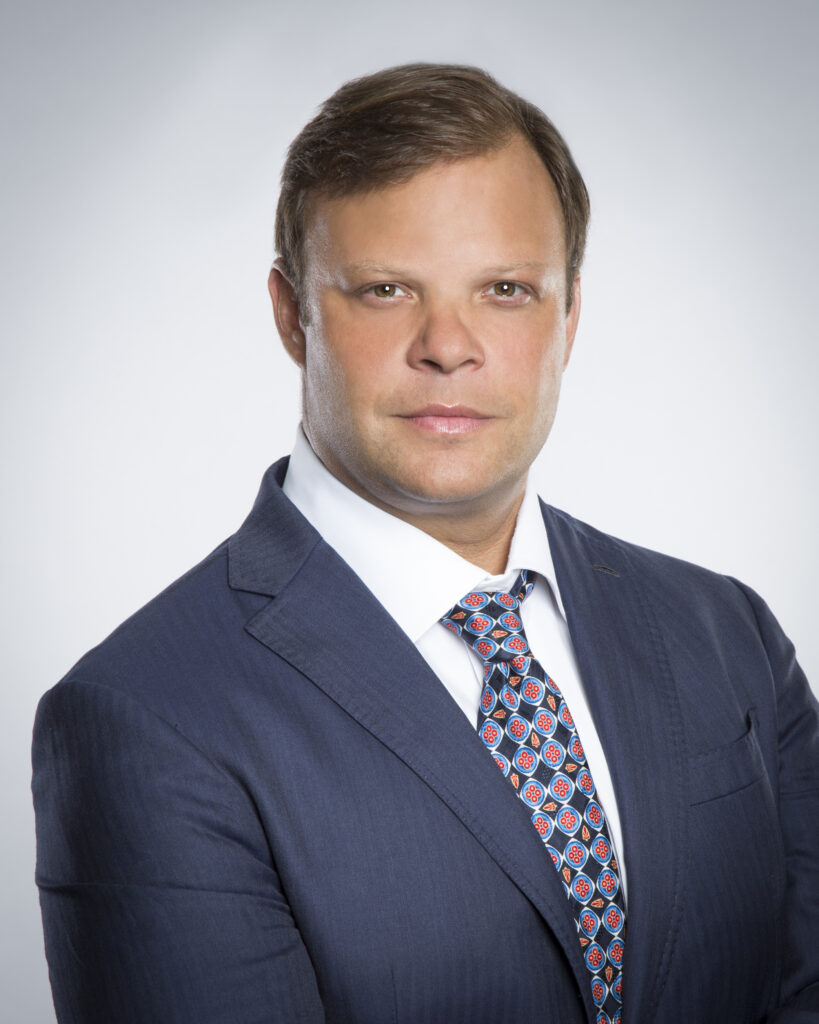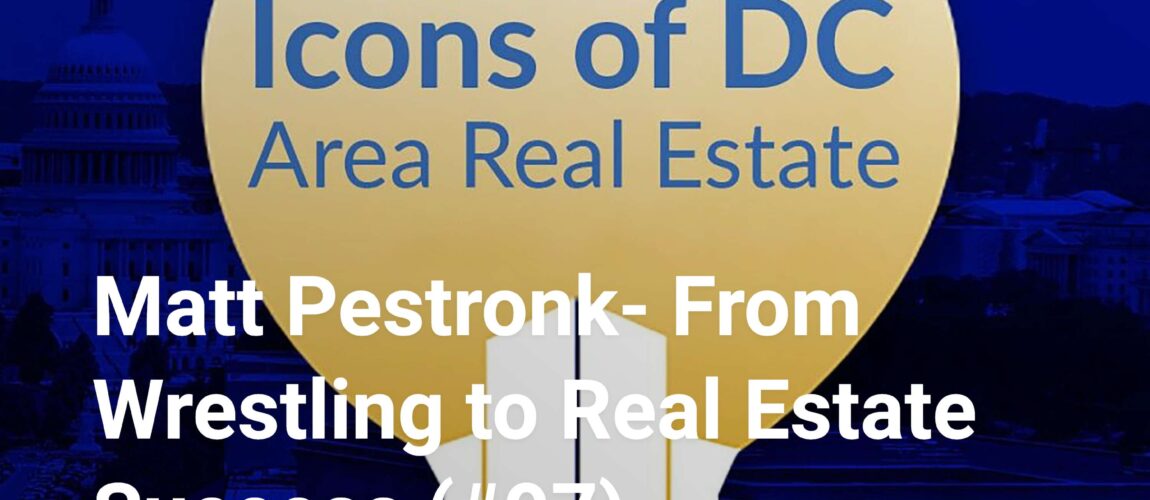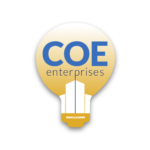

Bio
Matthew Pestronk is co-founder of Post Brothers, a real estate investment, development and management company with singular and unique expertise in urban real estate development. Matthew serves as President of the company, engaged in the sponsorship of 40 Class-A multifamily, mixed-use and retail development projects comprised of over 8,000 units that are operating, under development or disposed plus, over 700K sf of office and retail space, with a total capitalized cost in excess of $4 billion. Matthew shares strategic leadership of the company with his brother, Michael, and is engaged in asset management, financing, and project and capital formation. Matthew has worked in real estate capital transactions for his entire 20+-year career and was a real estate financing executive in New York City prior to forming Post Brothers. Matthew is also very active in his community serving as trustee of Washington D.C.’s Federal City Council and a director of Pennsylvania’s Regional Olympic Training Center plus has board service experience for multiple charitable organizations including the Federal City Council of Washington, D.C., the Philadelphia Holocaust Remembrance Foundation, Beat the Streets Philadelphia, Children’s Hospital of Philadelphia and is the Immediate past Chair of Jewish Federation Real Estate.
Show Notes
- The role of co-founder and president (00:06:00)
- Matt describes his role in the company, including capital formation, acquisitions, and oversight of capital transactions.
- Origins, youth, and parental influences (00:07:00)
- Matt talks about growing up in the Washington area, his parents’ background, and their preference for professional careers.
- Choosing a college and the lessons from sports (00:13:30)
- Matt discusses his decision to attend Drexel University, his experience as a wrestler, and the lessons he learned about preparation and failure in sports and business.
- The challenges of collegiate sports (00:14:00)
- Discussion about the intensity and difficulty of training for intercollegiate sports, particularly in a challenging academic environment.
- Lessons learned from collegiate wrestling (00:19:30)
- The speaker reflects on the ability to solve challenges, persevere, and think ahead that he gained from his experience in collegiate wrestling.
- Getting into real estate (00:24:40)
- Matt talks about his transition into the real estate industry, starting with an internship at a local Philadelphia company and his realization that he wanted a career where he could have a direct influence on his own success.
- The index card method (00:25:24)
- Matt learns a new method of organizing and managing data for the office leasing market from his mentor, Jon Sarkisian
- Learning the business (00:27:00)
- Matt describes his experience of learning the office leasing business and the challenges he faced as a young college student.
- Hiring difficulties and alternative options (00:34:00)
- Matt discusses his struggles with finding a job in the real estate industry due to his lack of a college degree and how he ended up working for a competitor firm.
- Short-term and long-term greed (00:42:00)
- Matt talks about the concept of short-term and long-term greed, and how it relates to his decision to own real estate. He discusses how he and his brother formed their investment thesis to acquire apartments.
- Transition to joining Ackman-Ziff (00:51:30)
- Matt explains how his experience of being undercapitalized led him to pursue a career in real estate finance and eventually join Ackman-Ziff.
- Matt discusses his decision to move to Ackman Ziff and his initial hesitation about the company’s exclusive representation of borrowers.
- Starting at Ackman Ziff (00:57:30)
- Matt talks about his interview process with Ackman Ziff and their unique way of doing business, which convinced him to join the company.
- Leaving Ackman Ziff (01:04:30)
- Matt explains the point at which he decided to transition out of Ackman Ziff and focus full-time on running Post Brothers, citing the growth and potential conflicts of interest.
- The growth of the company and transitioning to residential (01:12:30)
- Matt discusses the growth of the company and the transition from office to residential properties, with a focus on the Philadelphia market.
- Government subsidies and the office market in Philadelphia (01:14:30)
- Matt explains how government subsidies were used in Philadelphia due to the severely depressed office market and the deindustrialization of the city.
- The decision to convert office to residential in Washington (01:17:30)
- Matt talks about the decision to convert office buildings to residential in Washington, based on the weak office market and the limited new construction for multifamily properties.
- The Leading Converter of Office to Residential in Philadelphia (01:19:30)
- Discussion about the Post Brothers being the leading converter of office to residential in Philadelphia.
- Competing in the Washington Real Estate Market (01:22:15)
- Comparison of the opportunities and challenges in the Washington and Philadelphia real estate markets.
- Acquiring Challenged Office Buildings in Washington (01:27:30)
- Explanation of the thought process behind acquiring two specific office buildings in Washington and their potential for redevelopment.
- The JBG’s Realization (01:32:15)
- JBG realized the need for tenants to agree to surrender their lease possession before closing the deal.
- The Office Market’s Future (01:34:45)
- There is a broad acceptance that the office market will re-emerge, but only at the trophy level.
- Unlocking the Value of Land (01:35:30)
- Raising the Height Act and allowing additional density would unlock the value of land and create opportunities for redevelopment in Washington.
- Metro’s Financial Issues (01:43:20)
- Discussion on the financial challenges facing the Metro and the timeline for a possible solution.
- Regional Funding Mechanism for Transit Systems (01:46:00)
- Exploration of the shared funding mechanism for transit systems in downtown areas and the need for regional leaders to address the issue.
- The Value of Residential Real Estate in DC (01:50:00)
- Conversation about the long-term value of residential properties in Washington DC compared to the suburbs and the unique advantages of the city.
- The rooftop solar technology (01:57:45)
- Discussion about the use of rooftop solar technology in buildings and its contribution to sustainability.
- The limitations of geothermal technology (01:58:45)
- Exploration of the challenges of implementing geothermal technology in urban settings and the potential for future advancements.
- Details of the Universal Projects (02:00:00)
- Description of the Universal Projects, including the number of units, retail space, and target demographic.
- The history of family-owned real estate businesses (02:09:45)
- Discussion about how family-owned real estate businesses used to perform their own construction work and the changing landscape of the construction industry.
- The decision not to be their own general contractor in Washington (02:10:15)
- Explanation of why the Post Brothers do not plan to be their own general contractor in Washington and the quality of general contractors in the area.
- Transforming the 2100 M Street building (02:13:35)
- Details about the transformation of the 2100 M Street building, including adding retail space, building up to the maximum allowed height, and targeting a younger demographic for the residential units.
- The use of institutional equity (02:20:00)
- Matt discusses the company’s aversion to using institutional equity and their focus on high net worth capital for funding their projects.
- Financing structures and innovative projects (02:21:45)
- Matt talks about their financing structures, including using their own capital, family offices, and bringing in other equity when ready to build. He also mentions their approach to buying properties that have zoning to build what they want.
- Leasing a 700-unit project (02:28:00)
- Matt mentions the successful lease-up of a 700-unit project in Philadelphia, discussing the lease terms and the prevalence of concessions in the multifamily construction market.
- The Question of Going Public (02:31:15)
- Discussion on the frustrations of raising capital privately and the potential benefits of going public.
- Corporate Structures (02:34:00)
- The scale game of real estate development and the potential for new corporate structures to evolve.
- Life Priorities (02:35:30)
- Matt’s family life priorities, involvement in the community, and past involvement in building a public memorial.
- Advice (2:37:00)
- Have patience for people
- Billboard Statement (2:38:00)
- Bet big on Washington!

